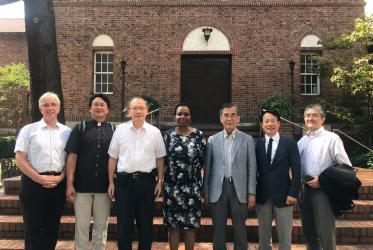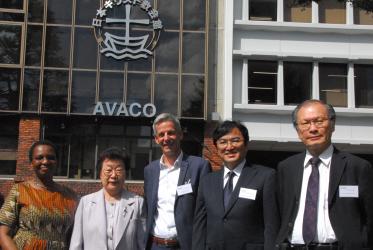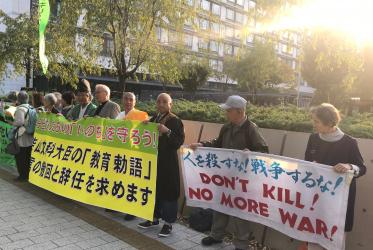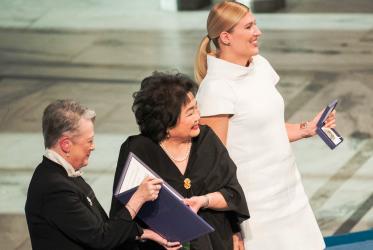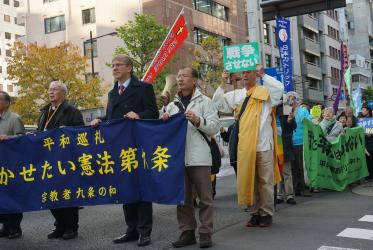Displaying 1 - 19 of 19
WCC offers prayer during Japanese peace conference
11 March 2021
In Japan, spirit of koinonia deepens
26 September 2019
In Japan, theologians reflect on today’s global manifestations of racism
18 September 2019
In Japan, indigenous and ecumenical youth call for action against racism
12 September 2019
Diakonia: “a tool to reach abundance of life”
24 July 2018
Seven weeks of Lent highlight water justice in Latin America
12 February 2018
WCC encourages churches to pray on Hiroshima Day
06 August 2015

